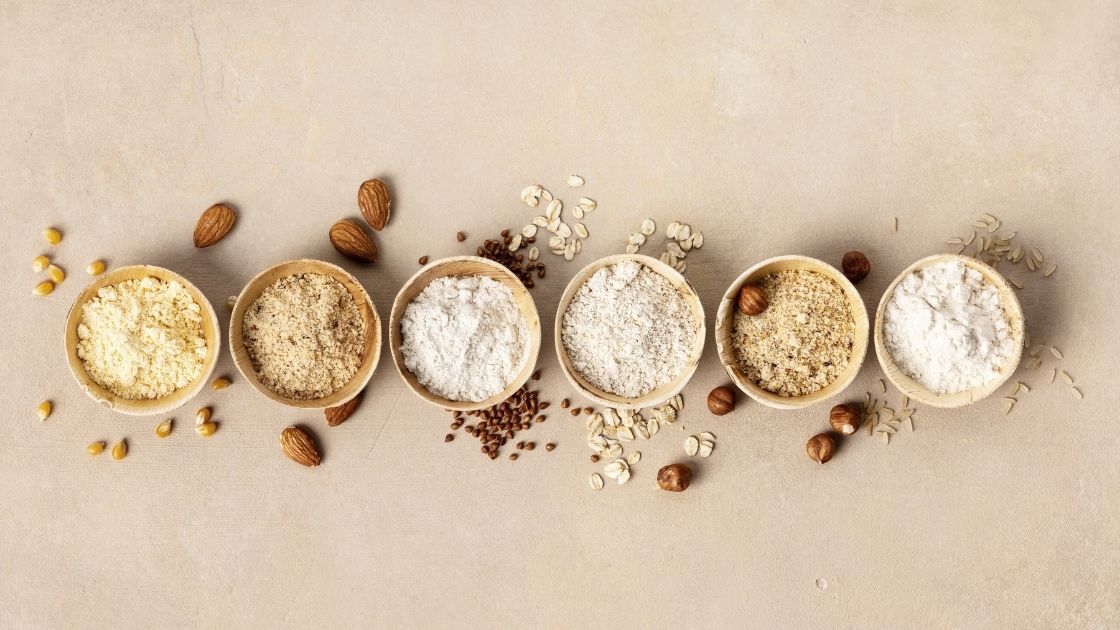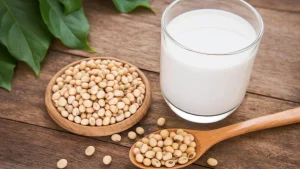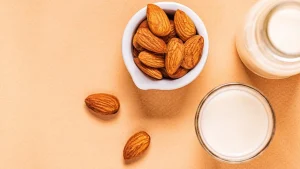- There are many types of flour available that claim to be better for weight loss compared to traditional white flour
- Different flours work better for different diets and bodies, so it can be difficult to determine which flour is the best for weight loss
- Whole wheat flour is relatively low in calories compared to other nut-based flours, but it is not very filling and lacks nutrients
- Gluten-free flour blends are low in calories and a great option for those looking to avoid gluten
- Amaranth flour and chickpea flour are high in protein and nutrients, making them better options for weight loss compared to regular wheat flour
In the past decade, a vast array of options has sprung up on the market, overturning our cupboards, diets, and lives!
These days, flour doesn’t just come in all-purpose and self-rising varieties.
From buckwheat to quinoa flour, many types of flour claim that they are better for your well-being and your waistline when compared to traditional white flour.
So, what is the healthiest flour out there, and what is the best flour for weight loss?
Today we’re all about flour options, so read on! Here are our 7 best healthy flours for weight loss!
Why Use Flour for Weight Loss?
Flour isn’t the most popular diet ingredient, but flour can actually make an amazing addition to your diet, even beyond baking!
You can transform dishes with just a tablespoon of flour. Why not try?
- Using flour to thicken soups and stews
- To give baked veggies an extra crunch
- As part of a healthy fruit crumble topping
- When making roti or healthy pancakes
Which Flour Helps You Lose Weight?
So which flour is the best?
If you’ve ever tried following a friend’s or celebrity’s tip for losing weight, you may have noticed that foods affect people differently.
Similarly, different flours will complement different diets and bodies, and it can be hard to define which is the best flour for your weight loss journey.
For example, a low-carbohydrate, high-fat flour such as almond flour will probably work best for those following the keto diet.
On the other hand, traditional wheat flour generally has the lowest calorie content.
Different flours will also work better in different recipes, which is why we’ve brought together seven of the best.
Whatever flour you choose, we always recommend selecting organic, unbleached flour and consuming it as part of a balanced diet.
Whole Wheat Flour
- Calories per cup: 408
- Protein: 16g
- Carbs: 86g
- Fat: 3g
Good old-fashioned whole wheat flour has gotten a pretty bad rep over the last few years.
If you think about it, it’s strange; it’s been one of our staples for years.
Its low fat content (3g per cup) actually means that wheat flour is relatively low calorie-wise, especially compared to nut-based flours like almond flour and hazelnut flour.
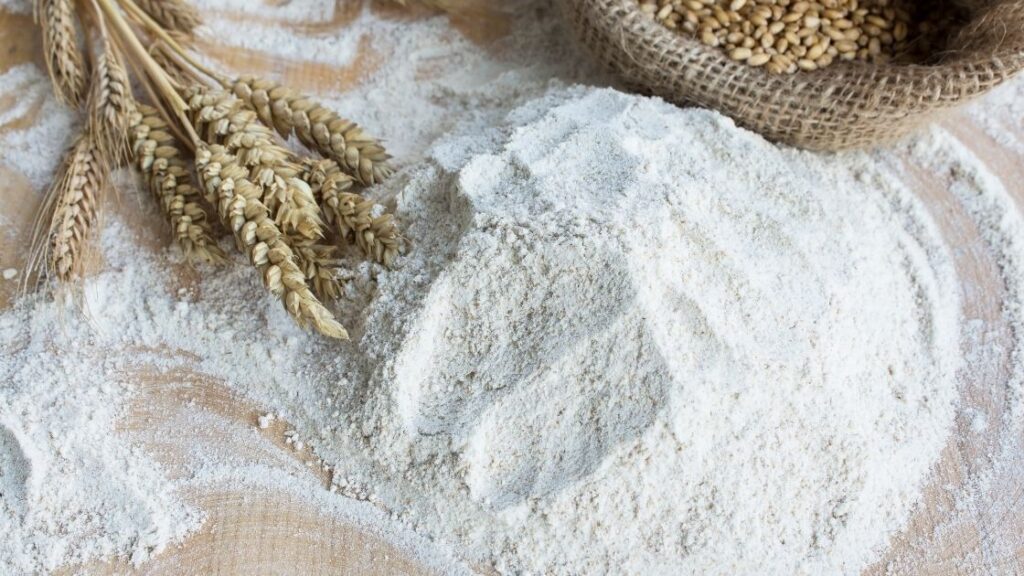
Unfortunately, it is not very filling, and as we all know, it’s pretty easy to wolf down a loaf of bread, a packet of cookies, or a tray of cupcakes made with white flour!
It’s also pretty nutrient sparse, although whole-grain wheat flour does have its added benefits.
It is also important to note that wheat flour is high in gluten.
Gluten intolerance or sensitivity can leave you feeling sick, bloated, or tired.
Gluten-Free Blend
- Calories per cup: 400
- Protein: 12g
- Carbs: 88g
- Fat: 4g

Gluten-free flour blends vary in their exact composition, although they usually contain a mix of rice flour, tapioca flour, xanthan gum, and cornstarch.
These blends are great for the home cook who is looking to avoid gluten and save a few calories.
With 400 calories per cup, it’s one of the lowest-calorie flours available.
Try using gluten-free flour to make some roti or flatbread.
Flatbread makes a great complement to any healthy eating plan, and using gluten-free flour blends will ensure you don’t eat up all your calories too quickly!
Almond Flour
- Calories per 1/4 cup: 163
- Protein: 6.1g
- Carbs: 5.6g
- Fat: 14.2g (9g monounsaturated)
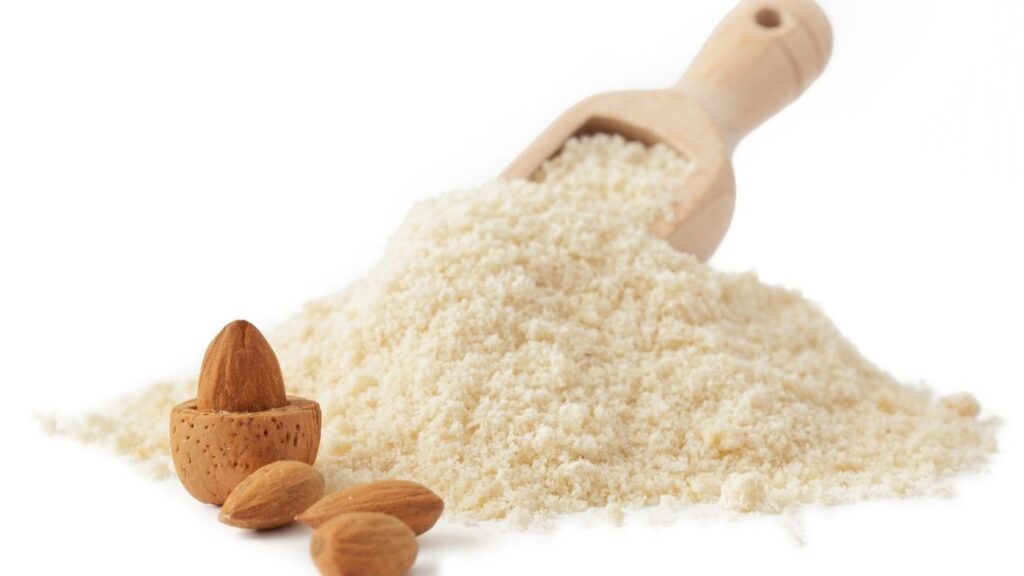
Flour made from finely crushed almonds has some pretty good nutritional qualities.
It’s high in protein, low in carbs, and keto-friendly too! But that doesn’t make almond flour the lowest in calories.
Nuts, although super healthy and packed full of essential vitamins and oils, are notoriously high in calories.
But don’t let that put you off!
You can still use this flour for weight loss.
This light powder makes delicious low-carb treats that will keep you satisfied for much, much longer than traditional whole wheat flour.
This also means you are much less likely to, shall we say, overindulge.
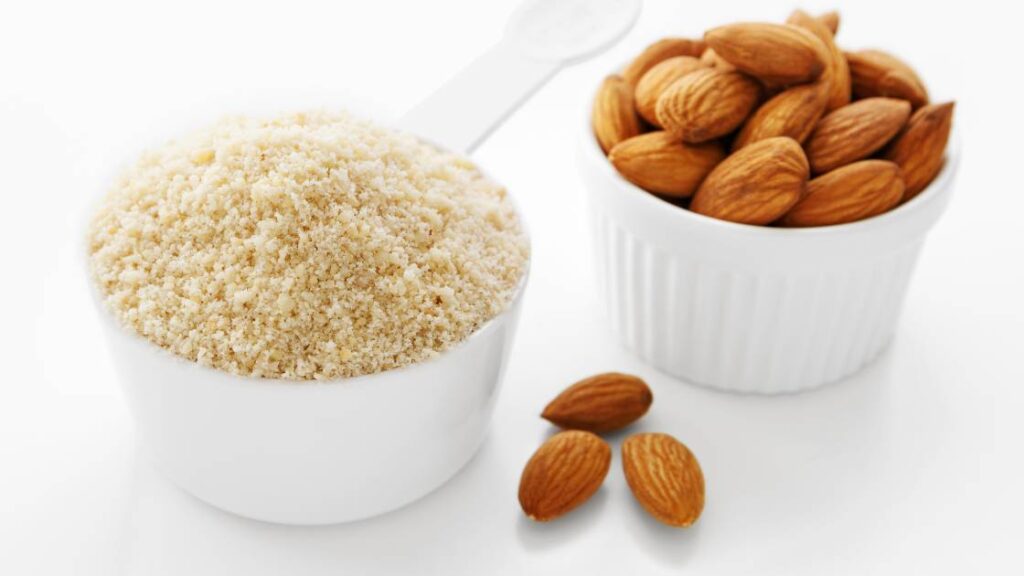
If you want to try using almond flour for weight loss in your next baking adventure, we recommend making some healthy pancakes.
Simply mix mashed banana, 2 beaten eggs, and 1/4 cup of almond flour.
Then, cook as you would a regular pancake in a non-stick pan. Voila! A healthy, delicious treat the whole family will go nuts (or bananas) for!
Amaranth Flour
- Calories per 1/2 cup: 242
- Protein: 9g
- Carbs: 39g
- Fat: 5.5g
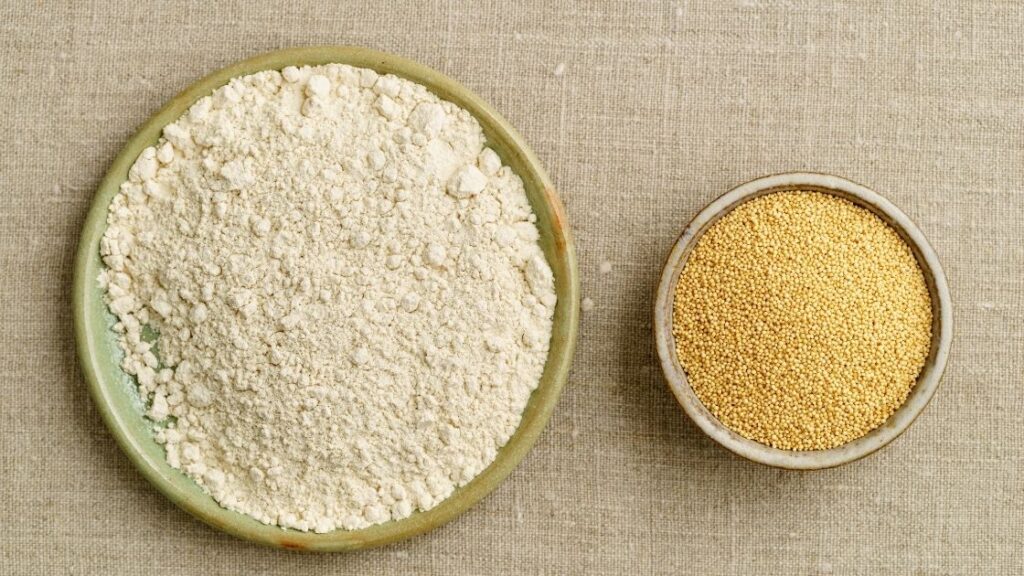
This ancient seed is a growing favorite among dieticians and bakers alike.
Slightly sweet and slightly nutty, Amaranth flour has none of the gluten found in whole wheat flour, making it a great option for those with an intolerance to gluten.
It also has over twice as much dietary fiber as whole wheat flour!
Amaranth flour is a strong source of calcium, magnesium, phosphorus, potassium, and other essential minerals.
While its calories are comparable to those of whole wheat flour, its high concentration of protein and nutrients makes Amaranth flour a much better flour for losing weight.
Sadly, Amaranth flour is still a specialty item, and it can be a little difficult to find.
Try looking at your local health food store under the “paleo diet” section.
Chickpea Flour
- Calories per cup: 356
- Protein: 21g
- Carbs: 53g
- Fat: 6g
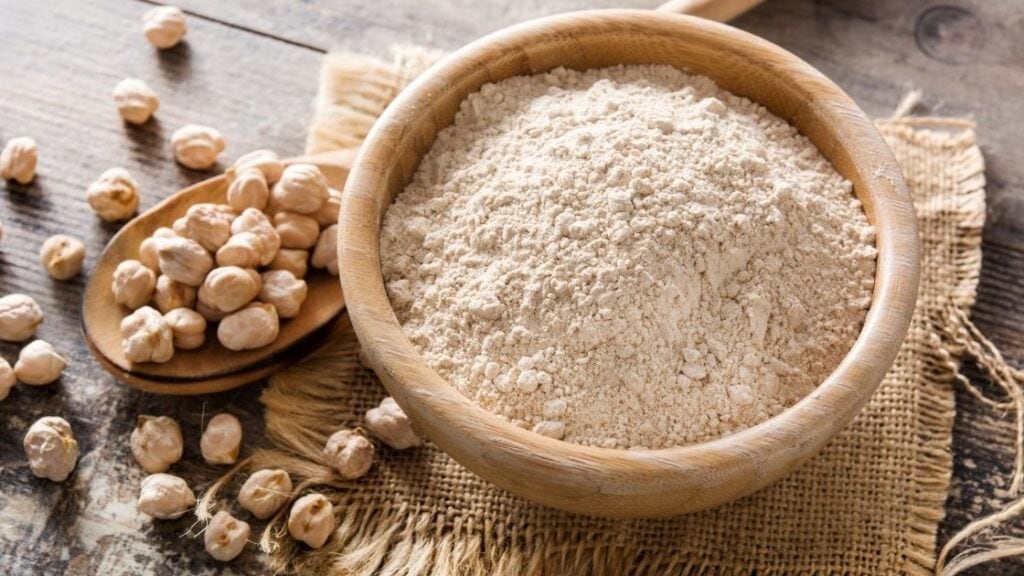
Also known as gram flour, this rich, yellow flour is made by grinding dry chickpeas into a fine powder.
It’s got double the fiber and protein of regular wheat flour, so chickpea flour is great for filling up rumbling tummies.
It also has fewer calories than regular flour, and won’t affect your blood sugar the way white flour does.
This makes it a far superior option for those with diabetes or anyone looking to lose weight.
On the other hand, chickpea flour makes a poor substitute when it comes to baking.
We recommend using this flour to thicken healthy soups or low-calorie dips, as opposed to as a substitute for all-purpose flour.
Chickpea flour can also be used to make a vegan egg substitute when mixed with water or soy milk.
Try adding it to sauteed onions and mushrooms for a surprisingly delicious vegan scrambled egg breakfast!
Oat Flour
- Calories per cup: 553.5
- Protein: 20.1g
- Carbs: 90g
- Fat: 12.5g
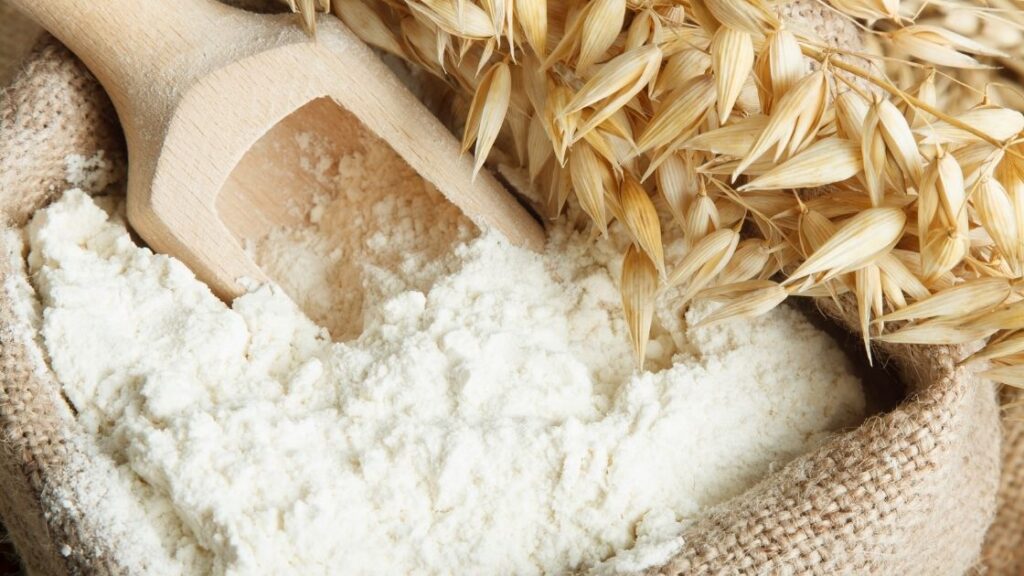
Oat flour is made by grinding oats into a fine powder.
Oats are one of the healthiest grains out there and are packed full of essential vitamins, minerals, macronutrients, and micronutrients.
They are also an incredibly rich source of manganese and magnesium, making them particularly great for people with high blood pressure.
Oat flour is relatively cheap and easily available, which makes it a convenient choice.
Unfortunately, even though it’s packed full of vitamins and protein, it’s also packed full of carbohydrates and calories, which doesn’t necessarily make it a fantastic diet flour for weight loss.
On the other hand, when consumed in moderation, it is incredibly filling.
Try using baked goods instead of all-purpose flour.
It also makes a great and satisfying oatmeal-style porridge when mixed with water or low-fat milk.
Coconut Flour
- Calories per cup: 480
- Protein: 24g
- Carbs: 72g
- Fat: 16g
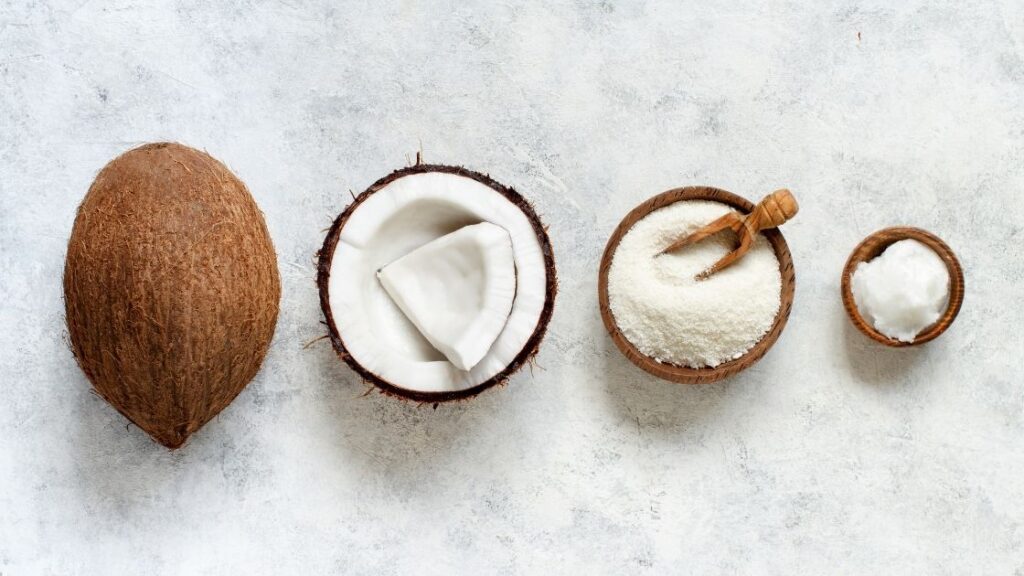
This flour is made by grinding dried coconut meat.
Coconut flour is a gluten-free alternative to regular wheat-based flours but is still pretty carb and calorie-heavy.
It doesn’t substitute very easily for regular flour and can be difficult to use in baking.
That being said, coconut flour is super high in soluble and insoluble fiber.
This will help keep you feeling full and satisfied, which makes it a great choice for anyone with digestive problems.
Which Flour Is Best for Weight Loss?
So when it comes down to it, which is the best flour for you?
Well, that depends on what you are looking for.
Whether your diet is low carb, low calorie, or you just want something to fill you up and stop you snacking, there’s flour out there for you.
Try experimenting yourself, get creative, and see how you can use flour for weight loss too!
You can follow our other articles, which contain great tips for weight loss and living well.

Rosily Ryan is an accomplished health and fitness writer, editor, and health activist based in Sydney, Australia. With a wealth of knowledge and expertise in the health and nutrition industry, Rosily has established herself as a trusted authority in the field. She has contributed to several leading publications, including Pure Green Magazine, where her work has been widely recognized for its insightful analysis and engaging style.
Rosily’s passion for health and fitness is evident in her writing. Her extensive research and first-hand experience in the field allow her to provide valuable insights and practical advice to her readers. As an advocate for healthy living, Rosily has been actively involved in various health initiatives and campaigns that aim to raise awareness about the importance of physical and mental well-being.
